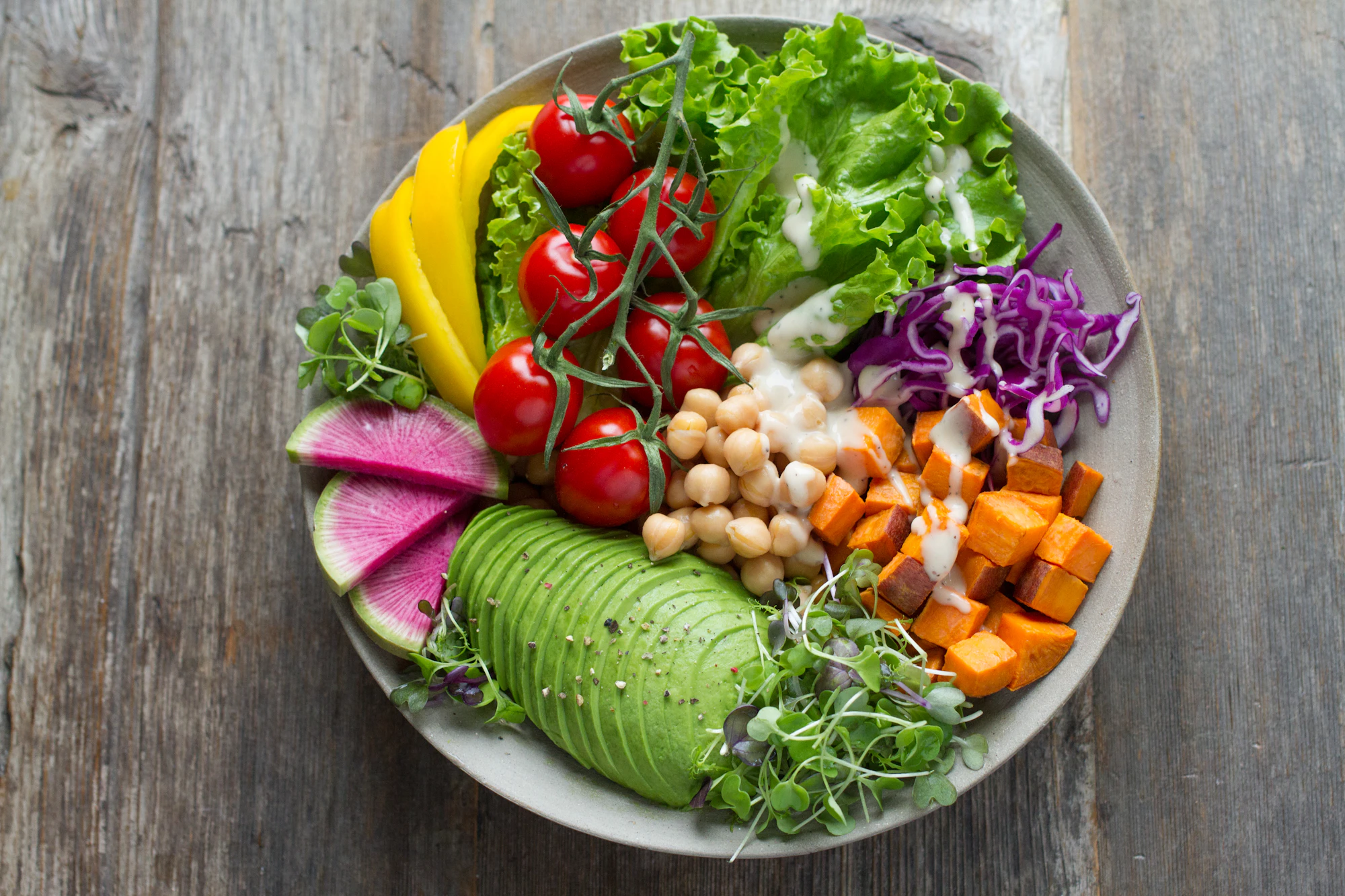That was the message I received loud and clear. As a vegan, I have to identify what to have in my meals to ensure that I get enough protein. You would be surprised by how much protein you can get from a vegan diet. That is usually the first question I am asked: “How can you eat enough protein if you don’t eat meat”? Let’s begin this conversation with some science.
Mood and Protein – the connection
Protein plays a crucial role in mood regulation:
- Building Blocks of Neurotransmitters
- Proteins are made up of amino acids essential for synthesizing neurotransmitters that affect mood. For example, the amino acid tryptophan is a precursor to serotonin, a neurotransmitter often referred to as the ‘feel-good’ chemical because it promotes feelings of well-being and happiness. – It helps you be happy! Yes
2. Regulation of Brain Function
- Neurotransmitters like dopamine, serotonin, and norepinephrine, which are derived from amino acids, play key roles in regulating mood, emotions, and cognitive functions. Imbalances or deficiencies in these neurotransmitters can lead to mood disorders such as depression and anxiety. It makes you feel good and makes your brain function better – Yay… like high-octane fuel.
3. Blood Sugar Balance
- Protein helps in stabilizing blood sugar levels. When blood sugar levels fluctuate significantly, it can lead to mood swings and irritability. By slowing the absorption of sugar into the bloodstream, protein can help maintain more stable energy levels and mood. It can help your mood…. Okay, everyone can use help with their mood.
4. Stress Response
- Certain amino acids can influence the body’s response to stress. For instance, the amino acid tyrosine produces dopamine and norepinephrine, which can help the body better manage stress. Help you manage stress … Yes!
5. Synthesis of Hormones
- Proteins, such as thyroid hormones, are also involved in synthesizing hormones that affect mood. Imbalances in these hormones can significantly impact mood and overall well-being. Overall well-being.Fantastic!
6. Gut Health Connection
- Amino acids from protein can also play a role in gut health, which is increasingly recognized as essential for mental health. A healthy gut can influence the production of neurotransmitters and reduce inflammation, which is often linked to mood disorders. Sore guts can take you down!
7. Sleep and Appetite Regulation
- Neurotransmitters like serotonin, derived from dietary protein, are essential for mood and play a role in regulating sleep and appetite, both of which can significantly affect how you feel. Sleep and Appetite… Wonderful
Eat your food as medicine… otherwise, you will need to eat your medicine as food ~Steve Jobs
Recommended Protein Intake – Aha … How much do you need?
Consuming adequate amounts of protein is essential to ensure sufficient production of these neurotransmitters. However, the type and amount of protein required can vary based on individual needs, age, health status, and activity level.
While protein is a key factor in mood regulation, it’s important to remember that mood and mental health are influenced by a wide range of factors, including overall diet, lifestyle, genetics, and environmental factors. A balanced diet, rich in a variety of nutrients, plays a crucial role in maintaining both physical and mental health.
Yes, getting enough protein on a vegan diet is entirely possible. The key is to consume a variety of plant-based protein sources to ensure you get all the essential amino acids your body needs. The concept of “enough” protein can vary depending on individual factors like age, gender, weight, activity level, and overall health.
Understanding Protein Needs
1. General Guidelines: The Recommended Dietary Allowance (RDA) for protein for the average adult is 0.8 grams of protein per kilogram of body weight. This is a baseline for preventing deficiency, but needs may be higher for certain groups like athletes, pregnant or breastfeeding women, and older adults.
2. Active Individuals: Highly active People like athletes may require more protein to support muscle repair and growth. This can range from 1.2 to 2.0 grams of protein per kilogram of body weight.
3. Older Adults: As people age, their protein needs may increase to help maintain muscle mass and strength, support bone health, and aid in recovery from illness or surgery.

Sources of Vegan Protein
A vegan diet can provide all the necessary protein through various fresh plant-based foods. Key sources include:
- Legumes: Beans, lentils, chickpeas, and peas.
- Soy Products: Tofu, tempeh, and edamame.
- Whole Grains: Quinoa, brown rice, barley, and whole grain bread.
- Nuts and Seeds: Almonds, peanuts, chia seeds, flaxseeds, hemp seeds, and pumpkin seeds.
- Vegetables: Some vegetables like broccoli, spinach, and Brussels sprouts also offer a modest amount of protein.
Ensuring Adequate Protein Intake on a Vegan Diet
– Variety: Include a variety of protein sources in your diet to ensure a full range of amino acids.
– Quantity: Make sure you are eating enough overall calories. Protein needs can be easily met if caloric intake is adequate.
– Meal Planning: Plan meals to include at least one good source of protein.
– Supplements: Consider protein supplements like vegan protein powders (pea, hemp, rice, or soy protein) if you find it challenging to meet protein needs through diet alone, especially for athletes or those with higher requirements.
Combining Proteins (Fact or Myth)
It was once believed that plant-based proteins needed to be combined within a single meal to make a “complete” protein (one containing all essential amino acids), but the current understanding is more flexible. Eating a variety of protein sources throughout the day is sufficient.
There is a difference between whole plant-based and plant-based.
I am seeing increasingly “plant-based” restaurants and food manufacturers popping up everywhere. Some of the restaurants advertise plant-based foods that are entirely off the wall with zero nutrition. It’s scary to see. As often, the plant-based menu is considered “good for you.” So, patrons think they are eating healthy. My nutritionist once told me that if the ingredients look like a science project vs looking like a recipe, stick with the recipe.

What happens to you when you start eating the way that I eat? Before eating this way, I always needed a nap mid-day. I felt sluggish after my meals. Once I changed to eating high-energy vegan meals, sluggishness was gone, and I became like the energizer bunny! I kept going and going.
It’s not always easy to maintain high energy while travelling. I can usually make it work in restaurants, but not always. I really have to plan ahead. I practice the 80/20 rules. I am strict 80% of the day, with some gray areas in the 20%. Most of the time, I am right on the mark. But I am not perfect. I try to avoid processed sugar as part of my diet whenever possible. (But that is a whole post in itself)
In summary, a well-planned vegan diet provides enough protein for most people. Focusing on variety and overall nutrition is essential to meet protein needs and the full spectrum of essential nutrients.










